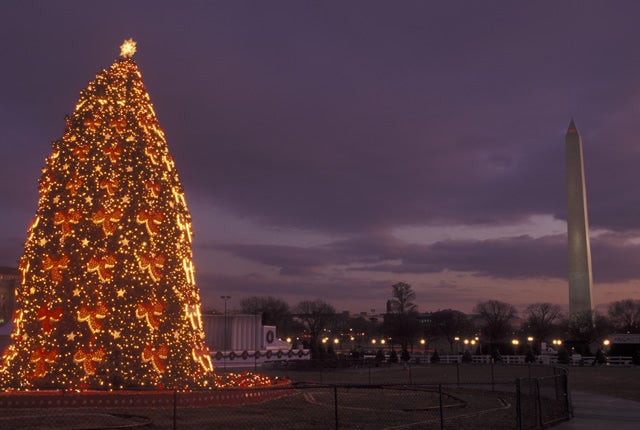Christmas Tree Tax ‘Stayed Indefinitely’
Mike Brownfield /
Last week, The Heritage Foundation reported on a 15-cent fee the Obama Administration’s Department of Agriculture planned to impose on certain sales of Christmas trees to support a new federal marketing program. Not 24 hours later, following an uproar of opposition, the White House announced it would delay its Christmas tree tax, and now it has made that delay official.
Yesterday in the Federal Register, the following notice was posted:
Due to recent events, the regulations are stayed in order to provide all interested persons, including the Christmas tree industry and the general public, an opportunity to become more familiar with the program.
So it seems, at least for now, the Christmas tree tax is no more. But will the general public “becoming more familiar with the program” make it any more palatable? It shouldn’t.
Heritage vice president David Addington wrote that the purpose of the 15-cent fee–which would have been imposed on some sellers–was to fund a “program of promotion, research, evaluation, and information designed to strengthen the Christmas tree industry’s position in the marketplace; maintain and expend existing markets for Christmas trees; and to carry out programs, plans, and projects designed to provide maximum benefits to the Christmas tree industry.” And the program of “information” was to include efforts to “enhance the image of Christmas trees and the Christmas tree industry in the United States.”
But is a federal program to “enhance the image of Christmas trees” even necessary, especially if, as is the case, some in the industry don’t even want it? As reported in the Federal Register, the Christmas tree industry “tried three different times to conduct promotional programs based on voluntary contributions. Each time, after about three years, the revenue declined to a point where the programs were ineffective.” In other words, a collective marketing program was tried, failed, tried, failed, and tried and failed again. So is it the federal government’s place to make such a program mandatory?
These kinds of programs are already fairly commonplace, whether consumers know about them or not. Agricultural marketing fees–imposed by the federal government–raise tens of millions of dollars annually to promote commodities like beef, blueberries and eggs. Heritage’s James Gattuso writes that these fees are “far from harmless”:
They not only cost growers and consumers money, and skirt constitutional provisions that only Congress has the power to tax, but they also violate basic principles of free speech, making some producers pay to communicate messages against their will.
Those are facts the American people should keep in mind as the Department of Agriculture tries to make them “more familiar” with its proposed Christmas tree tax.

